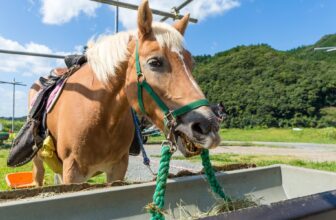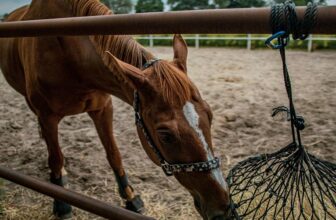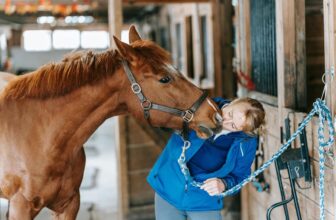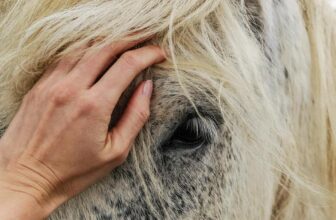
To build a strong bond with your horse, it's essential to establish a foundation of trust and respect. By focusing on effective communication, understanding your horse's needs, and spending quality time together, you can deepen your connection. But there's more to it than just these basics. By exploring the intricacies of equine behavior and delving into advanced techniques, you can truly elevate your relationship with your horse to new heights.
Understanding Equine Behavior
To build a strong bond with your horse, it's crucial to understand their behavior patterns and communication cues. Horses are highly social animals with distinct ways of expressing themselves. By observing your horse closely, you can learn a lot about their moods and preferences.
One key aspect of equine behavior is body language. Horses use subtle cues such as ear position, tail movement, and posture to convey their emotions. For instance, flattened ears may indicate aggression or discomfort, while a relaxed tail swishing gently signifies contentment.
Understanding herd dynamics is also essential. Horses are herd animals with a hierarchical structure. Recognizing how your horse fits into this hierarchy can help you establish a stronger connection with them. Additionally, being aware of their natural instincts, such as flight response or herd mentality, will enable you to anticipate their reactions in different situations.
Effective Communication Techniques
Understanding how to effectively communicate with your horse is essential for building a strong bond and fostering a harmonious relationship. Communication with your horse goes beyond verbal cues; it involves body language, tone of voice, and consistent signals. Horses are incredibly perceptive to non-verbal signals, so pay attention to your posture and movements when interacting with them. Use a calm and confident voice to reassure your horse and convey your intentions clearly.
Consistency is key in communication. Horses thrive on routine and predictability, so be consistent in your cues and commands. Repetition helps them understand what you're asking for and builds trust between you and your horse. Remember to reward good behavior promptly to reinforce positive communication.
Establishing boundaries is also crucial for effective communication. Clearly set limits and be firm but fair when correcting unwanted behavior. Horses respond well to gentle yet assertive leadership. By communicating clearly, consistently, and with respect, you can strengthen your bond with your horse and enhance your partnership.
Quality Time Spent Together
When spending quality time with your horse, engage in activities that strengthen your bond and create memorable experiences together. Take your horse for a leisurely ride through scenic trails, allowing both of you to enjoy the beauty of nature while building trust and companionship.
Grooming sessions are another great way to bond with your horse, as they provide a soothing and intimate experience that fosters closeness. Consider trying new activities together, such as learning a new skill like jumping or participating in a fun obstacle course, to challenge yourselves and grow together as a team.
Additionally, spending quiet moments just being present with your horse, whether grazing in the pasture or simply sitting together in the barn, can deepen your connection and understanding of each other. Remember, the key is to focus on each other during these moments, building a foundation of trust and respect that will strengthen your bond over time.
Strengthening Relationship and Trust
Building a strong relationship and trust with your horse requires consistent communication and positive interactions. Spend time with your horse regularly, engaging in activities that both of you enjoy. Grooming, riding, or simply spending quiet moments together can help strengthen your bond. Pay attention to your horse's body language and respond appropriately to build trust. Consistency in your actions and reactions will help your horse feel secure and confident in your presence.
Work on establishing clear boundaries and being a calm, assertive leader for your horse. Consistent training with gentle guidance will help your horse understand what's expected and strengthen your communication. Reward good behavior with praise or treats to reinforce positive interactions.
Trust is built over time, so be patient and understanding with your horse. Remember that every interaction is an opportunity to deepen your connection and trust with your equine companion. By consistently showing up for your horse and being a reliable, supportive partner, you can build a strong and lasting relationship based on trust and mutual respect.




